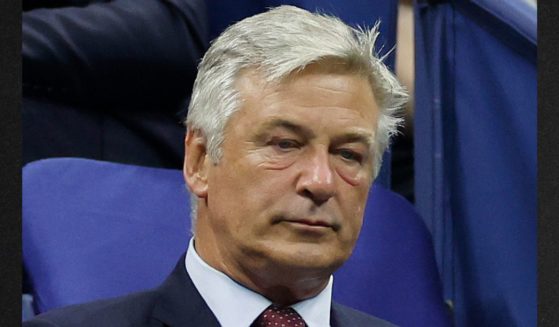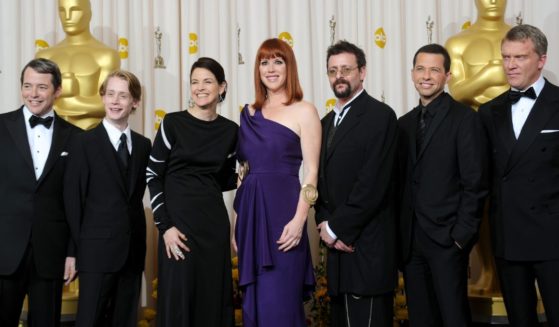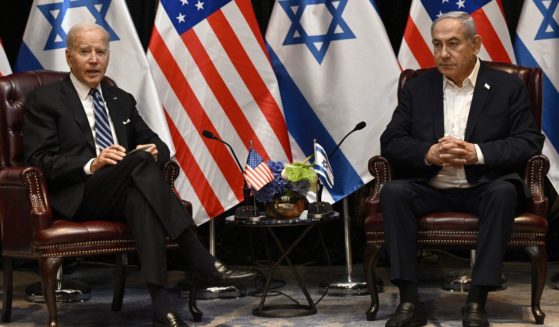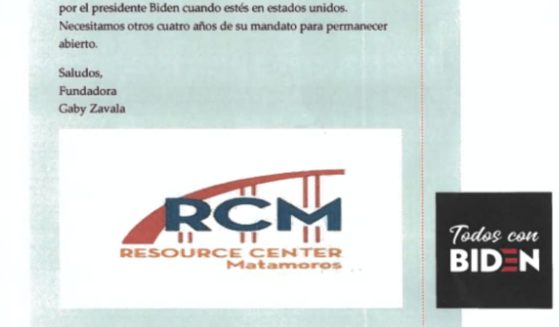Candy Ads Before and Then After Immigrant Invasion Show Chilling Difference
The hijab is one of the most controversial items of clothing in the world, and for good reason. It’s a sign of systematic religious oppression of women across the Islamic world, forcing them to hide their hair lest they offend Allah by unleashing the predations of helpless men who simply cannot be trusted to control themselves at the sight of hair.
While nobody denies women the choice to wear the hijab, the fact is that it is very often chosen for them in one way or another.
Yet, to many companies, the hijab has become a marketing symbol — a way to show that they’re multicultural and hip, that they get it. This is most pronounced in Europe, home of the migrant crisis; it’s a convenient way to market both to the Muslim community and to those who stand on the side of unchecked immigration.
This was most recently seen when the beauty products company L’Oreal hired a shampoo model whose hair you couldn’t see. As product demonstrations go, that was a solid F, but it seemed like a solid public relations decision until anti-Israel statements were found on the model’s Twitter account, calling the Jewish state “sinister,” “illegal” and “terrorist.”
That tends to scare off customers and quickly forced her resignation from the position, but the same hijab-as-marketing tactics were resurrected before her seat was even cold. This time it was in Germany, which has seen the largest number of migrants from the Middle East. Katjes, one of the country’s largest candy makers, caused a stir when it showed a woman in headscarf eating its candies.
🆘‼🐷☪ #Germany: Oh dear! German confectionery manufacturer Katjes now also advertises with hijab and halal sweets. Everything purely vegetarian and without animal Gelatine. pic.twitter.com/5T0Zck9kbE
— Onlinemagazin Ⓥ (@OnlineMagazin) January 30, 2018
According to the Frankfurter Allgemeine, the commercial was part of an ad campaign called “Jes! Alles Veggie!” which was supposed to emphasize the fact that since the candies were vegetarian, they could be eaten by adherent Muslims.
“Katjes is particularly popular with vegetarians, because the company dispenses with animal gelatin, which is found in most fruit gums of other confectionery manufacturers,” the Frankfurter Allgemeine reported. “Animal gelatin is made from pigs — an animal that Islam prohibits eating.”
However, given that the company was making money off of what’s most often a symbol of oppression that women in many parts of the world have struggled to cast off, social media users were less than thrilled at Katje’s decision to use the head covering in commercials.
A few even noticed what Katjes’ advertising looked like before the migrant crisis and now after it:
By the way, that's what it looked like in 2012, with German actress Alexandra Neldel. pic.twitter.com/TykgtWA3SF
— Onlinemagazin Ⓥ (@OnlineMagazin) January 30, 2018
The company posted a response to Facebook on Thursday, and the subtext was clear: You’re all a bunch of bigots.
“We have followed the reactions to our campaign ‘Jes! Alles veggie!’ with great interest in the last few days. There was a lot of positive feedback, but also critical voices around the campaign spots,” a computer translation of the statement read.
“We are open to any constructive exchange of views. At the same time, we strongly point out that we at Katjes do not tolerate offensive content, hate comments or posts with a xenophobic background. We reserve the right to remove them immediately.”
What “any constructive exchange of views” is, as compared to “offensive content, hate comments or posts with a xenophobic background,” remained decidedly unclear in the post. While social media isn’t always known for producing a digital version of the Aristotelian dialectic in the comments section, one also bristles when a company tries to make money off oppression and then foregrounds the insinuation that many of the “critical voices” of its decision are hateful ones.
“With the new campaign, we aim to appeal to young women in particular who enjoy life and consciously feed themselves,” the statement continues.
“These include young Muslims, in whom the abandonment of animal gelatin (in the recipe) plays an important role … We deliberately chose three very different strong women, who, as campaign faces, are representative of the diversity of our target group and in our view fit perfectly with the brand.”
“At the end all of us are connected to the love of snacking and we are happy to be able to share it with you completely veggie in the future.”
It is interesting to take note of just what is left out of the statement — namely, what the controversy was about in the first place. If someone read this without prior context, they’d get the impression that the only issue here was the model’s religion, not the oppressiveness of the hijab itself.
This is what uncritical acceptance of mass illegal immigration and the Willkommenskultur hath wrought: In talking about a controversy involving the hijab, it’s impolitic for the company to even mention the hijab. And if you do, you’re a bigot of some stripe.
Let me assure Katjes that not all women wearing the hijab in Germany are doing so of their own volition. In fact, many are from families and cultures where the hijab is enforced via social pressure. That’s actual patriarchy, mind you, as opposed to the chimerical type so ostentatiously resisted in liberal circles these days.
Yes, there are likely some who aren’t, and we certainly support right to make their decision individually. However, when a company makes a statement like Katjes, it is knowingly using a symbol of repression and maltreatment, then issuing a wishy-washy statement where it doesn’t even acknowledge what the fuss is all about. If you need a better primer for why Germany’s politics and society are in chaos right now, you could certainly start worse places than this candy advertisement.
Please like and share on Facebook and Twitter with your thoughts on this advertisement.
Truth and Accuracy
We are committed to truth and accuracy in all of our journalism. Read our editorial standards.












